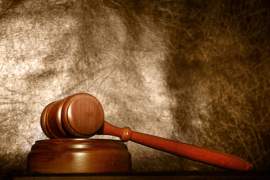
Background Dilution

Popular In Trademark
Trademark Registration Overview How To Trademark A Name Trademark Symbols Remedies To Trademark Infringement Defenses Against Trademark Infringement Paris Convention How To Report Trademark Infringement Tm Symbol Trademarks Common Law And Trademarks Types Of Passing Off How To Register A Trademark The Madrid Agreement Overview
Who is Protected?
The Trademark Dilution Act of 1995 protected all famous trademarks from being diluted even if there was not a likelihood of confusion. Likelihood of confusion is vital to any infringement case but it was determined that it was not necessary for dilution to occur.
Since arguments over what trademark are famous and were protected by dilution laws were bound to happen, the act created a list of criteria for determining which trademarks should be considered famous. The criteria for determining if a trademark is famous can be found hereDilution according to the Act
In the act defines dilution as "the lessening of the capacity of a famous mark to identify and distinguish goods or services, regardless of the presence or absence of competition between the owner of the famous mark and other parties or likelihood of confusion, mistake or deception."
What this means is if a well known trademark is in someway copied or made constructed similarly, the company responsible for diluting the original trademark is in someway bringing down the value and taking away the uniqueness of the original trademark.
The diluting company is trying to use the famous mark to benefit themselves regardless of whether or not they are doing any damage to the reputation and public perception of the well established trademark and the company it represents.
Concerns
When the act was created, many were concerned their first amendment rights would be violated. To put concerned minds at ease, the creators of the act believed they settled any possible disputes.
Fair use could still apply to trademarks and not cause dilution. Comparative commercial advertising in the proper context would be legal.
Non-commercial uses such as parody and satire would remain legal.
All forms of news reporting and news commentary would be legal.



















